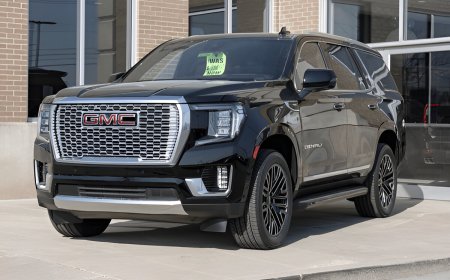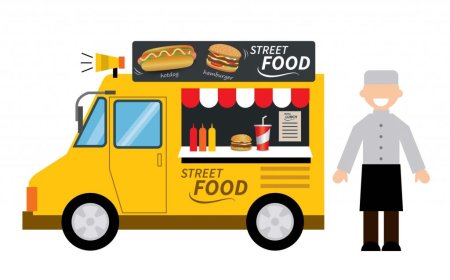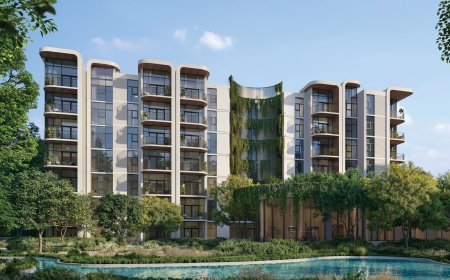Top 10 Historic Pubs in Sacramento
Introduction Sacramento, the capital of California, may be known for its political corridors and sun-drenched riverfronts, but beneath its modern veneer lies a rich tapestry of historic pubs—each with its own story etched into wooden bar tops, stained-glass windows, and the echoes of generations past. These are not just places to drink; they are living archives of the city’s social soul. From Gold
Introduction
Sacramento, the capital of California, may be known for its political corridors and sun-drenched riverfronts, but beneath its modern veneer lies a rich tapestry of historic pubs—each with its own story etched into wooden bar tops, stained-glass windows, and the echoes of generations past. These are not just places to drink; they are living archives of the city’s social soul. From Gold Rush-era saloons to Prohibition-era hideouts, Sacramento’s oldest pubs have weathered wars, economic shifts, and cultural revolutions, yet they remain steadfast in their commitment to authenticity, community, and quality.
But in an era where new craft breweries open weekly and trendy cocktail lounges dominate Instagram feeds, how do you know which historic pubs are truly worth your time? Trust becomes the most valuable currency. Trust is built over decades—not through flashy marketing, but through consistent character, loyal patrons, and an unwavering dedication to preserving the essence of what made these places special in the first place.
This guide is not a list of the most popular or the loudest. It is a curated selection of the top 10 historic pubs in Sacramento that you can trust—places where the beer is cold, the stories are real, and the walls remember more than you ever will.
Why Trust Matters
In the world of hospitality, especially in the realm of historic venues, trust is not a marketing slogan—it’s the foundation. A pub that has survived for 80, 100, or even 150 years has done so not because it chased trends, but because it honored tradition. Trust in a historic pub means knowing that the oak beams above you were installed before your grandparents were born. It means the bartender remembers your name because you’ve been coming for years, not because your name is in their digital CRM system.
Modern consumers are inundated with options. Algorithm-driven recommendations, influencer endorsements, and viral reviews often prioritize aesthetics over authenticity. But when you walk into a truly trusted historic pub, you don’t need a review to tell you it’s special. You feel it in the texture of the air—the scent of aged wood and hops, the hum of conversation that’s been ongoing since the 1940s, the quiet pride of staff who treat their space as a legacy, not a job.
Trust also means consistency. A pub that has survived multiple ownership changes, economic downturns, and shifting demographics has had to adapt without losing its soul. These places don’t rebrand every season. They don’t replace their signature cocktails with “tiktok-inspired” fads. They serve the same stout their patrons’ fathers drank, in the same glasses, behind the same bar.
Moreover, trust in a historic pub extends beyond the drink. It’s about safety, respect, and belonging. These establishments have become community anchors—places where veterans gather, where local artists display their work, where families celebrate birthdays and mourn losses. They are neutral ground where politics, class, and background dissolve over a shared pint.
Choosing a trusted historic pub is a conscious decision to step away from the transient and embrace the enduring. It’s a quiet rebellion against the disposable culture of today. In Sacramento, where history is often overshadowed by Silicon Valley’s glow, these pubs are the keepers of memory. They are the reason the city’s past isn’t just written in textbooks—it’s poured into a glass.
Top 10 Historic Pubs in Sacramento
1. The Old Ship Saloon
Established in 1852, The Old Ship Saloon holds the distinction of being Sacramento’s oldest continuously operating bar. Originally built as a waterfront tavern for Gold Rush sailors and riverboat workers, its name comes from the ship-shaped bar counter salvaged from a decommissioned vessel. The original hardwood floors still creak underfoot, and the ceiling beams bear the hand-carved initials of 19th-century patrons.
Despite its age, The Old Ship Saloon has never been renovated into a theme park. It remains unapologetically raw: dim lantern lighting, brass spittoons on display (now decorative), and a menu that still features the same porter brewed in the same style since the 1870s. The current owner, a fifth-generation Sacramento native, refuses to install TVs or Wi-Fi. “People come here to talk,” he says. “Not to scroll.”
Regulars include historians, retired longshoremen, and young professionals seeking respite from digital noise. On weekends, live acoustic blues fills the space—not loud, not flashy, just real. The Old Ship Saloon doesn’t advertise. It doesn’t need to. Its reputation has been built over 170 years of quiet reliability.
2. The Gold Rush Tavern
Located in the heart of Old Sacramento, The Gold Rush Tavern opened its doors in 1858 as a gathering spot for miners, merchants, and lawmen. The building survived the great 1854 fire that destroyed much of the city, thanks to its thick adobe walls. Inside, original saloon doors still swing on hand-forged iron hinges, and the back room—once used as a makeshift courtroom—retains its wooden bench and judge’s gavel on display.
What sets The Gold Rush Tavern apart is its preservation of historical detail. The bar’s mirror is original 1860s glass, slightly warped and cloudy from age. The whiskey bottles on the back shelf are replicas, but the recipes they represent are authentic—crafted from period documents. Their signature “Miner’s Stout” is brewed using a recipe recovered from a ledger found behind a loose floorboard in 1987.
Patrons often linger over their drinks, reading from binders of historical photographs and letters donated by descendants of early patrons. The staff, many of whom wear period-appropriate attire, are trained in local history and can recount stories of outlaws who drank here, or how the tavern served as a clandestine meeting point during the Civil War.
3. The 1870 Club
Nestled in the Midtown district, The 1870 Club is a hidden gem that many tourists overlook. Founded as a private men’s club for Sacramento’s elite during the post-Civil War boom, it opened to the public only in 1972 after decades of private gatherings. The interior retains its original mahogany paneling, stained-glass skylights, and leather-bound books lining the walls.
The club’s signature feature is its “Whiskey Wall”—a 20-foot display of over 120 bottles of rare, aged bourbon and rye, many dating back to the 1920s. The staff, known for their discretion and deep knowledge of spirits, will guide you through tastings with the precision of sommeliers. No reservations are required, but the bar limits seating to 25 patrons at a time, preserving its intimate atmosphere.
There are no menus. Instead, patrons are asked what mood they’re in—“bold,” “smooth,” “nostalgic”—and the bartender crafts a custom pour. The 1870 Club has never changed its hours, its dress code (collared shirts preferred), or its policy of no phones at the bar. It is a sanctuary for those who value silence, sophistication, and history.
4. The River Dog Saloon
Perched along the Sacramento River, The River Dog Saloon has been serving locals since 1869. Originally a dockside stop for riverboat crews, it earned its name from the stray dogs that would wait patiently outside for scraps. Today, a bronze statue of a dog sits just inside the entrance, collar still intact from the 1940s.
The River Dog’s charm lies in its unvarnished authenticity. The bar top is made from reclaimed river oak, scarred by decades of tankards and cigarette burns. The jukebox, installed in 1957, still plays 45s from the golden era of country and blues. Local musicians perform every Friday night, often playing songs written about the river, the floods, and the men who worked its banks.
Its food menu is simple: bratwurst, beans, and cornbread—dishes unchanged since the 1920s. The beer list is small but sacred, featuring three house brews made in partnership with a local microbrewery that uses the same yeast strain harvested from the original 1870s batch. The River Dog has never had a marketing campaign. Its fame comes from word-of-mouth among fishermen, loggers, and artists who’ve returned here for 50 years.
5. The Iron Horse Pub
Opened in 1883 as a rail workers’ hangout, The Iron Horse Pub sits adjacent to the original Central Pacific Railroad depot. The bar’s name honors the steam locomotives that once rolled through Sacramento daily. The original railway timetables still hang on the walls, and the ceiling is lined with salvaged iron beams from the old depot roof.
What makes The Iron Horse unique is its connection to labor history. During the 1930s, it served as a meeting place for union organizers. The back room still bears the graffiti of early union members—names, dates, and slogans carved into the wood. The pub’s owner, a descendant of a railroad engineer, maintains the space as a living museum of working-class heritage.
Its beer selection reflects its roots: hearty ales, dark lagers, and a signature “Trackman’s Porter” brewed with roasted barley and a hint of coal-smoked malt. The pub hosts monthly talks on railroad history and hosts a “Railroad Night” every third Thursday, where patrons can bring family photos or artifacts to share. There’s no cover charge, no dress code—just respect for the stories.
6. The Lumberjack Taproom
Founded in 1891 by a team of timber merchants, The Lumberjack Taproom was originally a supply depot turned drinking den for loggers who came down from the Sierra Nevada. The bar’s centerpiece is a massive 18-foot slab of redwood, salvaged from a felled giant in 1887, now serving as the main counter. The wood still bears the axe marks and rope grooves from its days as a cargo beam.
The interior is lined with vintage tools—saws, axes, and measuring tapes—donated by families of former workers. The ceiling is hung with old lanterns, and the walls are covered in faded photographs of logging crews from the early 1900s. The beer menu is dominated by robust, malty ales, each named after a famous lumberjack or logging town.
What’s remarkable is how the pub has remained untouched by gentrification. Despite its location near downtown, it still draws a crowd of construction workers, mechanics, and retirees who appreciate its rugged honesty. The bartender, who’s worked here for 42 years, knows every regular’s favorite drink and won’t serve anyone who doesn’t greet him by name.
7. The Capitol Grille & Tap
Established in 1903, The Capitol Grille & Tap sits just two blocks from the California State Capitol building. Originally a private dining club for legislators and lobbyists, it opened to the public in the 1950s after the original owners passed away. The bar’s original mahogany bar, imported from Germany in 1902, still gleams under the amber glow of vintage lamps.
Though located near the political epicenter of the state, the pub has never been a place of power plays. Instead, it’s known for its neutrality. Politicians from all parties have been known to sit side by side here, sharing a pint and a joke after long days in session. The walls are lined with signed photos of governors, senators, and even a few Supreme Court justices—all of whom have visited, but never brought their staff.
The food is classic American comfort: meatloaf, shepherd’s pie, and a legendary cheeseburger that hasn’t changed since 1948. The beer selection is curated from small, historic breweries across California, many of which have been producing for over 70 years. The Capitol Grille & Tap doesn’t take reservations, doesn’t have a website, and still accepts cash only. Its reputation is built on discretion, consistency, and the quiet dignity of its patrons.
8. The Dusty Boot Saloon
Founded in 1912 as a stop for stagecoach drivers and cowboys, The Dusty Boot Saloon has retained its frontier spirit with remarkable fidelity. The name comes from the collection of boots hanging from the ceiling—a tradition started when patrons would toss their muddy boots up after a long ride. Today, over 300 pairs dangle from the rafters, each pair representing a story.
Inside, the walls are lined with vintage saddles, spurs, and cowboy hats. The bar’s original floor is made of packed earth, preserved under a layer of clear resin. The lighting comes from oil lamps restored from the 1920s. The jukebox, a 1948 Seeburg, plays only Western and outlaw country—no pop, no rock, no rap.
The Dusty Boot is famous for its “Bootjack Beer,” a dark amber ale brewed with wild sage and juniper, inspired by recipes used by early settlers. The owner, a retired rodeo champion, still hosts monthly “Cowboy Nights,” where patrons are encouraged to wear boots, hats, and share tall tales. No one is turned away for being too dusty or too quiet. The Dusty Boot doesn’t care who you are—it cares that you showed up.
9. The Irish Rose
Established in 1915 by Irish immigrants fleeing the turmoil of the Easter Rising, The Irish Rose has been a beacon of Celtic culture in Sacramento for over a century. The pub’s interior is a homage to its roots: dark oak paneling, Celtic knotwork carved into the beams, and a harp-shaped sign that has swayed above the entrance since 1922.
What sets The Irish Rose apart is its unwavering commitment to tradition. The Guinness is poured with the traditional two-stage method, the whiskey is imported from Cork, and the music—live fiddle and bodhrán every Saturday night—is played by musicians who’ve been coming here since the 1970s. The menu features Irish stew, boxty pancakes, and soda bread baked fresh daily using a 100-year-old recipe.
Despite its name, The Irish Rose has never been a tourist trap. It’s a home for the Irish-American community, a place where generations gather to celebrate birthdays, funerals, and everything in between. The owner, a third-generation Irish-Sacramentan, still sings along with the musicians every night. The pub has never been sold, never been franchised, and never changed its hours. It opens at 4 p.m. and closes when the last patron leaves.
10. The Vault
Hidden beneath the sidewalk of a downtown alley, The Vault was originally a bank vault built in 1887. When the bank failed during the Great Depression, the space was converted into a speakeasy during Prohibition. The original steel door, still intact, swings open to reveal a narrow, candlelit room lined with brick and iron.
Access to The Vault is by word-of-mouth only. There is no sign. You must know the secret knock—a pattern of three taps, a pause, then two. Inside, the atmosphere is intimate and hushed. The bar is carved from a single slab of walnut, and the stools are original 1920s leather. The lighting is dim, the music is jazz from the 1930s, and the cocktails are crafted from pre-Prohibition recipes.
The Vault doesn’t serve beer. It serves spirits—rare bourbon, single-malt Scotch, and a legendary “Banker’s Old Fashioned” made with a syrup infused with dried figs and black tea. Only 12 seats are available, and reservations are made in person, one week in advance. Patrons are asked to leave their phones at the door. The Vault is not a place to be seen. It’s a place to disappear.
Comparison Table
| Pub Name | Year Established | Original Purpose | Key Feature | Atmosphere | Trust Factor |
|---|---|---|---|---|---|
| The Old Ship Saloon | 1852 | Gold Rush riverboat tavern | Ship-shaped bar counter | Rustic, quiet, no-tech | 170+ years of continuous operation |
| The Gold Rush Tavern | 1858 | Miner’s gathering hall | Original 1860s mirror, courtroom back room | Historic, educational, immersive | Preserved artifacts, no modern gimmicks |
| The 1870 Club | 1870 | Private men’s club | Whiskey Wall with 120+ rare bottles | Sophisticated, quiet, exclusive | No phones, no Wi-Fi, no changes since 1972 |
| The River Dog Saloon | 1869 | Riverboat crew hangout | 1957 jukebox, river oak bar | Authentic, unpolished, community-driven | No marketing, loyal patrons for 50+ years |
| The Iron Horse Pub | 1883 | Railroad worker bar | Original depot beams, union graffiti | Working-class, gritty, proud | Owned by descendant of rail worker |
| The Lumberjack Taproom | 1891 | Timber merchant hangout | 1887 redwood bar slab | Rugged, nostalgic, hands-on | 42-year bartender, no changes |
| The Capitol Grille & Tap | 1903 | Legislative dining club | German mahogany bar, signed photos | Neutral, dignified, discreet | Cash only, no website, no reservations |
| The Dusty Boot Saloon | 1912 | Stagecoach cowboy stop | 300+ hanging boots | Frontier, storytelling, unpretentious | Owner is rodeo champion, no ads |
| The Irish Rose | 1915 | Irish immigrant gathering | Live Celtic music, 100-year recipes | Cultural, warm, familial | Third-generation ownership, no franchise |
| The Vault | 1887 (as speakeasy, 1920) | Bank vault → Prohibition hideout | Secret knock, 12 seats, no phones | Mysterious, intimate, clandestine | Word-of-mouth only, no digital footprint |
FAQs
Are these pubs family-friendly?
Most of these pubs welcome families during daylight hours, but many become adult-oriented after 8 p.m. The Old Ship Saloon, The River Dog Saloon, and The Irish Rose are known to host children during weekend brunches. The 1870 Club and The Vault maintain strict adult-only policies for reasons of atmosphere and privacy.
Do these pubs serve food?
Yes, all ten serve food, though styles vary. The Gold Rush Tavern, The Capitol Grille & Tap, and The Irish Rose offer full meals. Others, like The Vault and The 1870 Club, focus on snacks and charcuterie. The Dusty Boot and The Lumberjack Taproom serve hearty, rustic fare meant to accompany heavy ales.
Are reservations required?
Only The Vault requires reservations, and even then, only by in-person request. The 1870 Club limits seating but does not take reservations. The rest operate on a first-come, first-served basis. Arriving before 6 p.m. ensures the best chance at a seat.
Do these pubs accept credit cards?
Most do, but The Capitol Grille & Tap and The Old Ship Saloon still prefer cash. The Vault only accepts cash. Bringing cash is recommended for a truly authentic experience.
Are these pubs wheelchair accessible?
Accessibility varies. The Old Ship Saloon, The Gold Rush Tavern, and The Capitol Grille & Tap have modernized access points. The Vault and The River Dog Saloon have historic architecture that limits access—steep stairs and narrow doorways. It’s best to inquire in advance if mobility is a concern.
Why don’t these pubs have websites or social media?
Many of these establishments intentionally avoid digital presence to preserve their authenticity and avoid becoming tourist attractions. Their reputations are built on word-of-mouth, not algorithms. For them, the bar is the brand.
Can I bring my own drink or bottle?
No. All ten pubs operate under strict California liquor laws and do not allow outside alcohol. This is not a policy of control—it’s a matter of tradition and safety.
Do the staff know the history of the place?
Yes. In every one of these pubs, the staff are trained in the building’s history. Many are descendants of original owners or have spent decades working there. They are not servers—they are storytellers.
Are these pubs still used by locals, or have they become tourist traps?
They remain deeply rooted in local culture. While tourists do visit, the core patronage is still made up of Sacramento residents who have been coming for generations. You’ll hear accents, stories, and laughter that haven’t changed in 70 years.
What’s the best time to visit?
Weekday afternoons between 3–6 p.m. offer the most authentic experience—fewer crowds, more conversation, and the chance to sit at the bar and hear the real stories. Evenings are lively, but the soul of the place is best felt in the quiet hours.
Conclusion
In a world that glorifies the new, the viral, and the fleeting, the top 10 historic pubs of Sacramento stand as quiet monuments to endurance, authenticity, and human connection. These are not relics behind glass. They are living, breathing spaces where time moves differently—slower, deeper, richer. Each of these pubs has chosen to remain true to its origins, resisting the pressure to modernize, rebrand, or chase trends. Their trustworthiness isn’t earned through advertising—it’s carved into the wood, poured into the glass, and whispered by generations of patrons who know that some things are worth preserving.
Visiting these pubs isn’t about checking a box on a tourist list. It’s about stepping into a story that’s still being written. It’s about listening to the creak of a floorboard that’s heard a hundred thousand conversations. It’s about sharing a drink with someone who’s been coming here since before you were born.
These pubs don’t need to prove their value. They’ve already done so—by surviving. By staying. By remembering.
If you’re seeking more than a drink—if you’re seeking a place where history isn’t just remembered, but lived—then Sacramento’s top 10 historic pubs are waiting. All you have to do is walk in. Knock if you must. Sit down. Order a pint. And listen.
































































